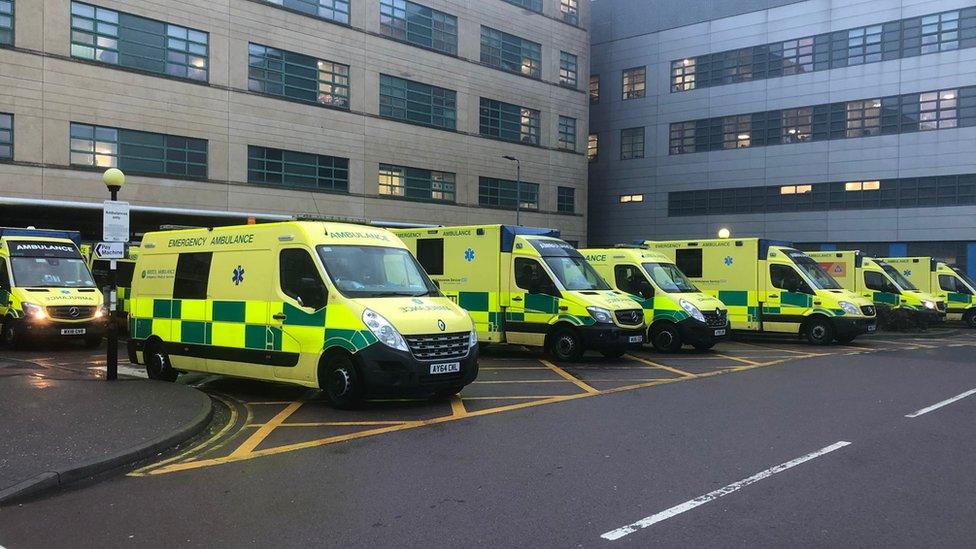South West hospital pressures expected to worsen
- Published
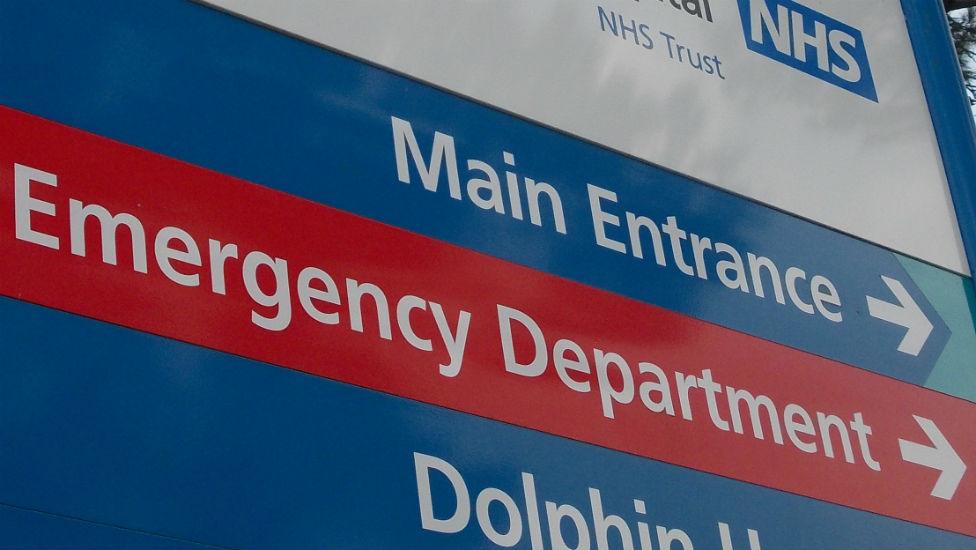
Emergency departments have been under a lot of pressure
Medical experts warn pressures on health services are expected to get worse in January amid the "hardest winter ever".
Dr James Gagg, from the Royal College of Emergency Medicine, said it "hurt" to see people "coming to harm" due to pressures.
South West A&E departments have been "under incredible pressure".
The government said it was increasing NHS capacity by the equivalent of 7,000 beds nationally to help.
The Royal Cornwall Hospital has been operating at critical incident level since 20 December.
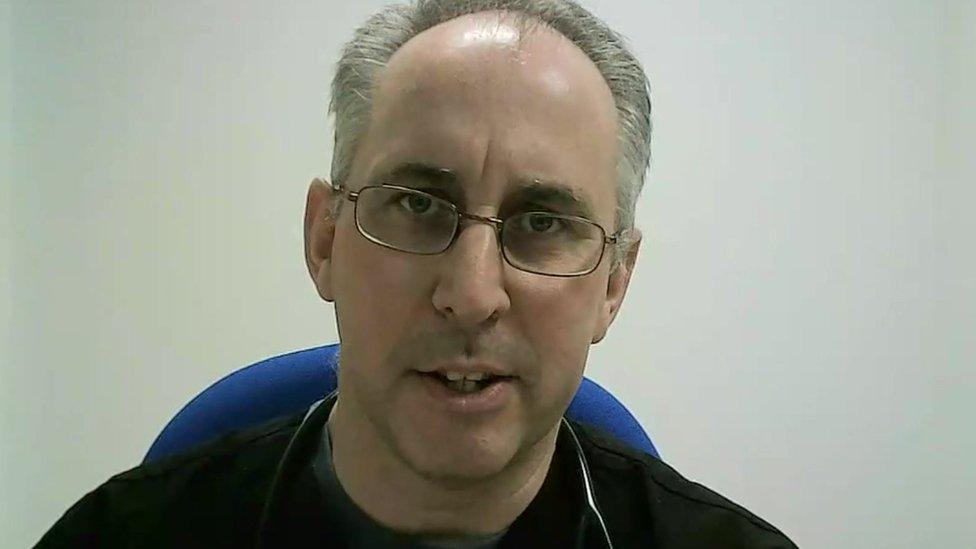
Dr James Gagg from the Royal College of Emergency Medicine said things were expected to get worse
Dr Gagg, south west chair of the Royal College of Emergency Medicine, said harm was being caused to the health of people waiting for ambulances and patients waiting to be admitted to hospital.
"It hurts to see that people are coming to harm, and to see people coming in sicker than they necessarily should have been because of some of these problems that are occurring," he said.
Dr Gagg said he had spoken to paramedics who had arrived at scenes to find patients had "already passed away".
He said "significant delays" were expected to get worse.
"Unfortunately what we're expecting is for the situation to deteriorate in the weeks and months ahead."
Dr Toby Slade, emergency department consultant and associate medical director for urgent care at the Royal Cornwall Hospital said: "This winter has been the hardest ever, and that's a very high bar.
"We know that patients who are treated in departments that are crowded are at increased risk of harm...
"We try and do everything we can in a department to mitigate that... But we know that these pressures will have an impact on patient care," he said.
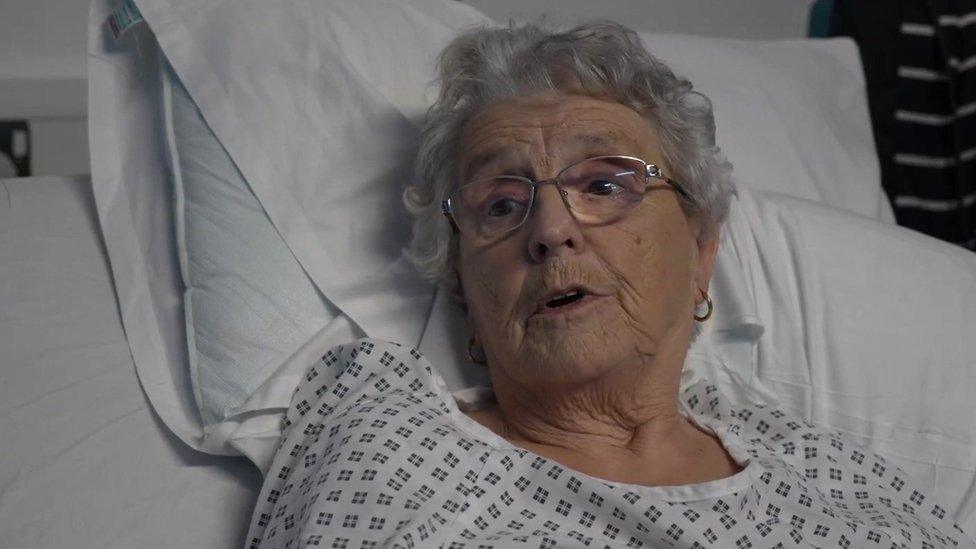
Marie Grubb said "it was agony" waiting 31 hours for an ambulance to arrive
Eighty-two-year-old Marie Grubb from Wadebridge waited 31 hours for an ambulance after she fell on her kitchen floor and broke her pelvis.
She said "willpower" had helped her through the time she had to wait.
"This delay in ambulances is the problem, once you get in here it's working like a dream really, but I don't know what's going on with them behind the scenes, they must be run off their legs," she said.
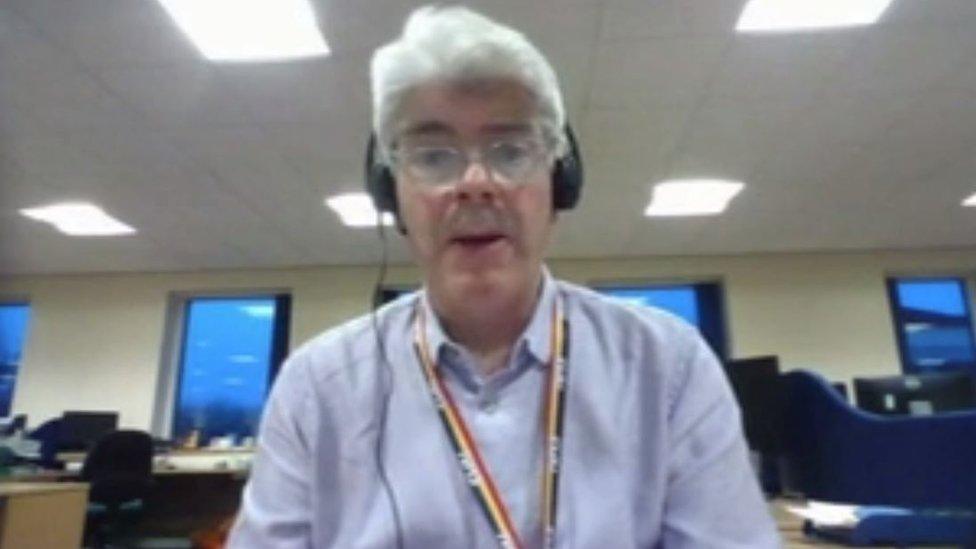
Nigel Acheson, NHS Devon's chief medical officer, said a combination of factors had resulted in increased pressure
Dr Slade added there was an urgent need to recruit more carers to ease the pressures facing our hospitals.
Nigel Acheson, NHS Devon's chief medical officer, said a "constellation" of flu, Covid, norovirus, Strep A and other respiratory infections had caused "pressure", exacerbated by staff sickness.
He added the need to separate Covid and flu patients had further complicated the issue.
Mr Acheson said hygiene measures including hand-washing, as well as taking up flu and Covid vaccinations, would help and predicted the pressures would ease in the spring.
Both he and Prof Mark Hamilton, medical director at University Hospitals Plymouth NHS Trust, appealed to the public to "think carefully" before attending emergency departments.
The government has said it is increasing NHS capacity by the equivalent of 7,000 beds, with a £500m fund to improve hospital discharge times and a £150m for the ambulance service.

Follow BBC News South West on Twitter, external, Facebook, external and Instagram, external. Send your story ideas to spotlight@bbc.co.uk, external.
- Published3 January 2023
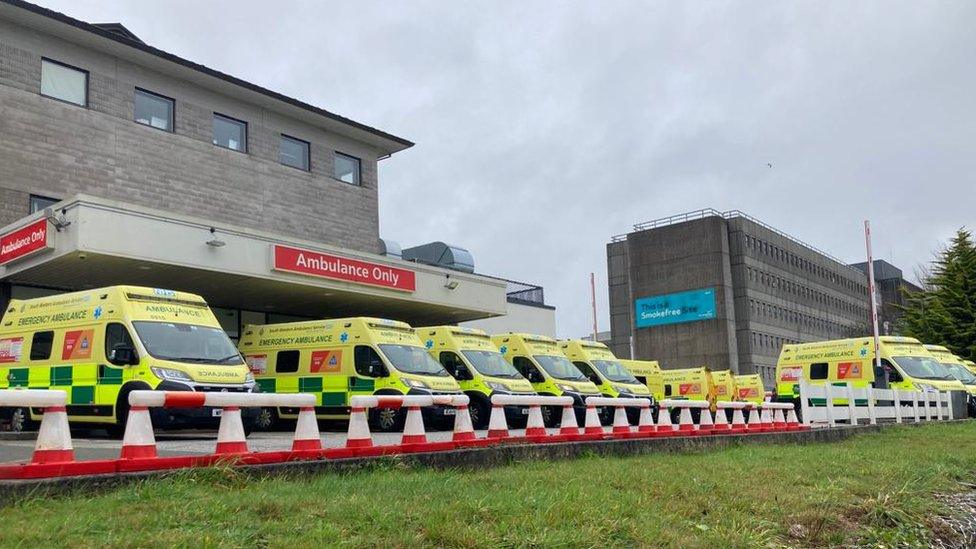
- Published31 December 2022
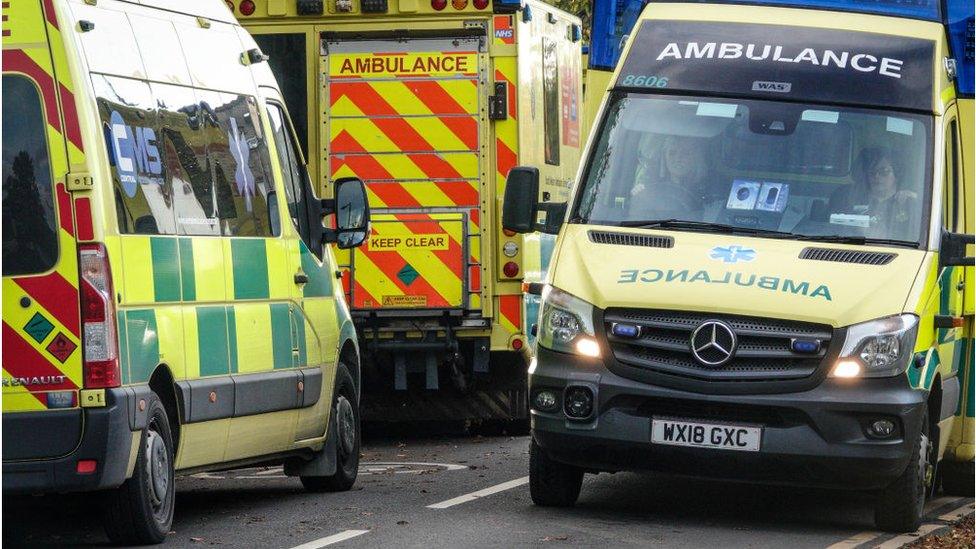
- Published29 December 2022
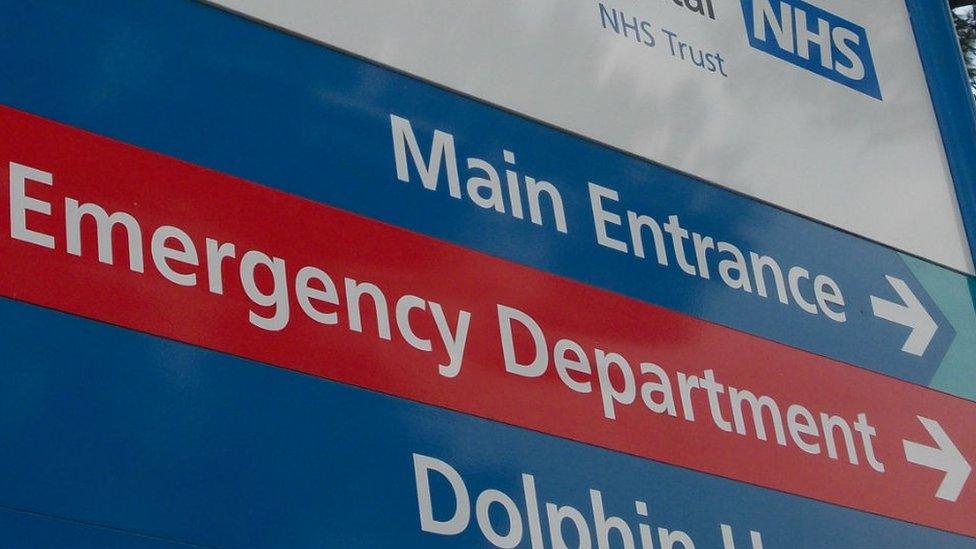
- Published28 December 2022
